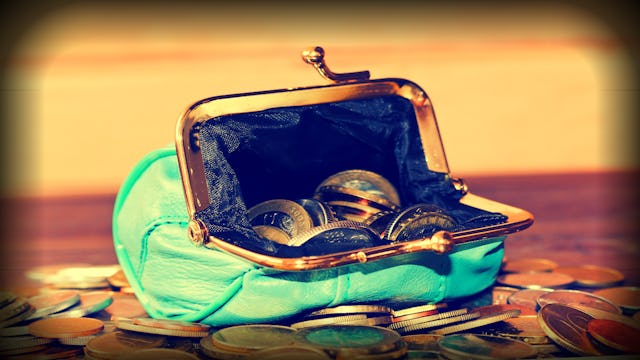Higher Social Class Increases Your Chance of being An Asshole (Science Says)

“Let me tell you about the very rich,” says F. Scott Fitzgerald in his 1926 short story, The Rich Boy. “They are very different from you and me.”
We quote the old saw and shrug: this is the brave new world of 2018 and we’re all the same now, right? At least when it comes to what matters. When you see through the maids and the jets and the tropical vacations, we’re all made of the same stuff. That’s what makes us America.
Except it turns out Fitzgerald was right.
The tip of the iceberg: in 2012, several scientists published a paper with the National Academy of Sciences. They did seven different studies showing that upper-class people were more likely to behave unethically than their lower-class counterparts. Wealthier people were more likely to break the law while driving: to cut off other vehicles and to refuse to stop for pedestrians at a crosswalk. They were more likely “to engage in unethical decision-making,” take candy from babies (okay, children), “lie in a negotiation,” cheat because of their favorable attitudes toward greed, and allow unethical behavior at work.
Scientists concluded that, “upper-class individuals’ unethical tendencies are accounted for, in part, by their more favorable attitudes toward greed.”
So basically, rich people are greedier than the rest of us, which leads them to be okay with screwing other people and behaving unethically. Eek.
But wait, it gets worse.
The very rich are also less compassionate than you and me. In a 2012 study in Emotion, psychologists from Berkeley had people watch two videos: one of a man building a patio, and another of children with cancer. Participants were hooked up to heart monitors, so scientists were actually able to measure their compassion levels because heart decelerations are associated with empathetic feelings. The researchers found that the higher the subject’s socio-economic class, the less likely they were to experience that decreased heart rate associated with empathetic feelings. In other words, poorer people were more likely to feel compassion for the kids with cancer than rich people.
The very rich don’t listen to us very much, either. The scientists in the 2012 National Academy of Sciences study cited one in Psychological Sciences from 2009, in which people engaged with a stranger for 60 seconds. Scientists coded these exchanges for nonverbal cues of engagement and disengagement — and found that rich people showed more signs of disengagement, like doodling, and less signs of attention like head-nods and laughter. Basically, the richer you are, the less attention you pay to the people around you.
In The New York Times, Dr. Daniel Goleman suggests that this is because “we focus the most on those we value most.” Rich people can afford to hire help. People with less capital, on the other hand, have to rely on a social safety net in order to get by: the friends, for example, who will drop by food when your whole family’s down with the flu.
“The financial difference ends up creating a behavioral difference,” Goleman says. “Poor people are better attuned to interpersonal relations — with those of the same strata, and the more powerful — than the rich are, because they have to be.”
PBS recently asked: “Do you live in a bubble?”
Apparently, they claim, there’s a “new upper class that’s completely disconnected from the average white American and American culture at large, argues Charles Murray, a libertarian political scientist and author.” The quiz asks about your past and present experiences with social class, from the neighborhood you grew up in (working class or rich?), if you’ve ever lived around people without college degrees, what your parents did, if you’ve experienced poverty as an adult and as a child (caveat: graduate school doesn’t count), if you’ve seen certain popular movies. It tells you how thin your “bubble” is: the higher your score, and more insulated your bubble, the more insulated you may be from mainstream American culture.
And the more likely you may be to do things like talk on your cell phone during interpersonal interactions, less likely to drop money in those jars set up to help kids with cancer — or at least show compassion for those kids. You may instead be more likely to cheat, cut people off in traffic, engage in unethical behavior at work, and ignore pedestrians at crosswalks.
In other words, you may be more likely to feel and act entitled. You may be less likely to care about other people (because you don’t have to), and more likely to value greed. Ouch.
The very rich may be very different than you and me. But not in ways we’d like to emulate.
This article was originally published on